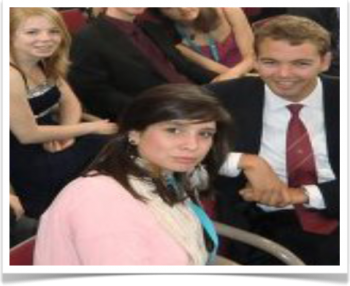Challenging Sustainable Learning with the Holistic Paradigm

“An astounding number of children are ill fed, ill clad, badly treated and also illiterate and needlessly ill. Millions perish every week from diseases that could be completely eliminated, or at least prevented from killing with abandon. Depending on where they are born children can have the means and facilities for great prosperity or face the likelihood of desperately deprived lives (Amartya Sen, 2006)”.
The current challenges generated by an unleashed globalization include the loss of human values, such as peace, justice, dignity,solidarity and respect in our societies. The ideas of Amartya Sen and Martha Nussbaum that democracy and economic development needs learning about the humanities and social justice have not yet been taken for granted in today’s discipline of academic economics.
Even though the world might be threatened by poverty, environmental disasters and war the discipline of economics and business is still focused on exchanging specialist, quantitative knowledge while trying to impress each other amongst a small group of scholars. As a result only incremental changes in knowledge in specific areas have been made which might have nothing to do with the political, social and economic reality of the modern world we are living in.
Economics during the times of Marx, Smith, Keynes, Ricardo and Schumpeter was based on philosophical thinking but has now has been reduced to the art of measuring the immeasurable while providing models to bankers, traders and investors – models that prove what they want to be true within financial markets. Since most of the generation of current scholars in economics and business has been educated in this way not much criticism would be expected. Due to the lack of academic knowledge in providing sustainable frameworks of economic thinking, a vicious circle opens the door to power abuse, corruption and free market fundamentalism.
Jakobsen (2011) states that the last decade of scientific development within economics and business can be characterized by growing specialization featuring narrowly defined fields of research. Classical economic theories have been reduced to abstractions by shaping and reshaping simplified, atomistic models. These models are mostly speculating about the future under simplified conditions and in linear terms. Specialized knowledge became more important than overall general insights into integrative wholes and dynamic networking.
Holism is a re-emerging paradigm based on a rich heritage from many scholarly fields. Holism affirms the inherent interdependence of evolving theory, research and practices. It is rooted in the assumption that the universe is an integrated whole in which everything is connected. This assumption of wholeness and unity is in direct opposition to the paradigm of separation and fragmentation that prevails in the contemporary world. Holism corrects the imbalance of reductionist approaches through its emphasis on and expanded conception of science and human possibility.
Arthur (1999) emphasizes that scholars in economics and business are now elaborating on the former equilibrium approach by turning to the question of how the actions of individual agents, their strategies or expectations might endogenously change while adapting to the aggregate patterns they create. The moment we emphasize the formation of structures rather than their given existence, the problems that occur when trying to forecast the developments within the economy are different. The complexity theory that holds this perspective on analyzing the economy portrays it not as deterministic, predictable and mechanistic but as process dependent, organic and always evolving.
It is not an adaption to the conventional economic equilibrium theory but a theory at a standard out-of-equilibrium level whereby reaching a perfect equilibrium is moreover the exception than conventional behavior.
Taleb (2007), for example, stresses that in measuring uncertainty one simple observation that can be characterized as an extreme event with low-probability and high impact can invalidate a statement derived from a million observations. During the credit crisis this could be for example the unexpected fall of Lehman Brothers. Such events could explain almost everything in the world, from the rise and fall of empires, the upcoming of religions but also elements of our personal career, family and romantic lives.
According to Gang, Meyerhof and Mayer (1992) individual persons find identity, meaning and purpose in life through connections with other elements of the learning system. This could be the interconnectedness with the community, the natural world or spiritual values such as compassion and peace. Spiritual learning calls for the fostering of differences in each and every person and a sense of respect, tolerance and appreciation for human diversity. Individual persons are inherently creative, have unique physical, emotional, intellectual and spiritual needs and abilities and possess an unlimited capacity to learn.
“The art of spirituality in approaching the child from which we are so far is a secret that can establish human brotherhood: it is a divine art that will lead to the peace of mankind. The children are so many, they are numberless, they are not one star, they are more like the Milky Way, that stream of stars that passes right across the heavens “(Maria Montessori, 1939)”.
*For more information on holistic learning see the Global Alliance for Transforming Education (GATE) and the book “Conscious Education, The Bridge to Freedom” by Gang, Meyerhof and Mayer (1992)




